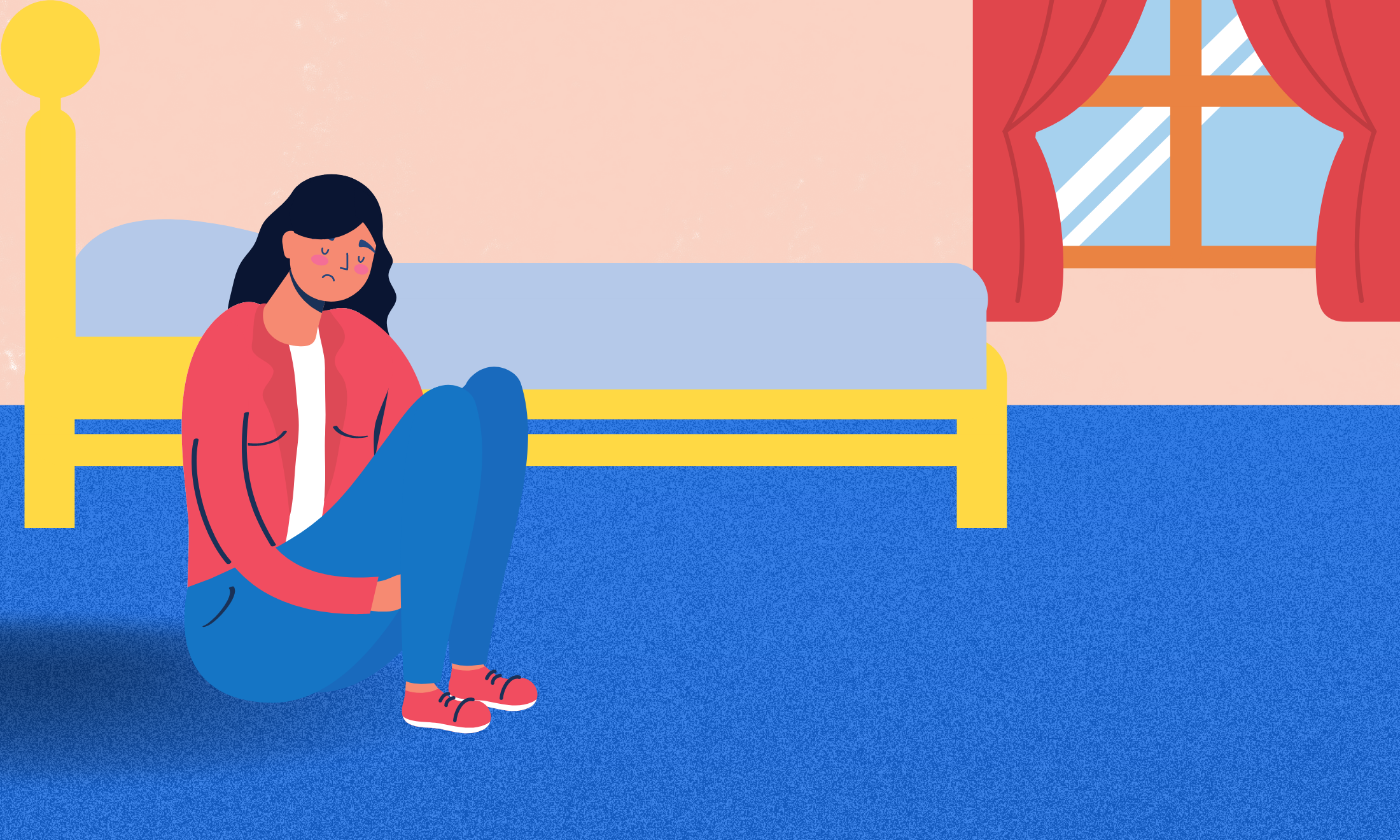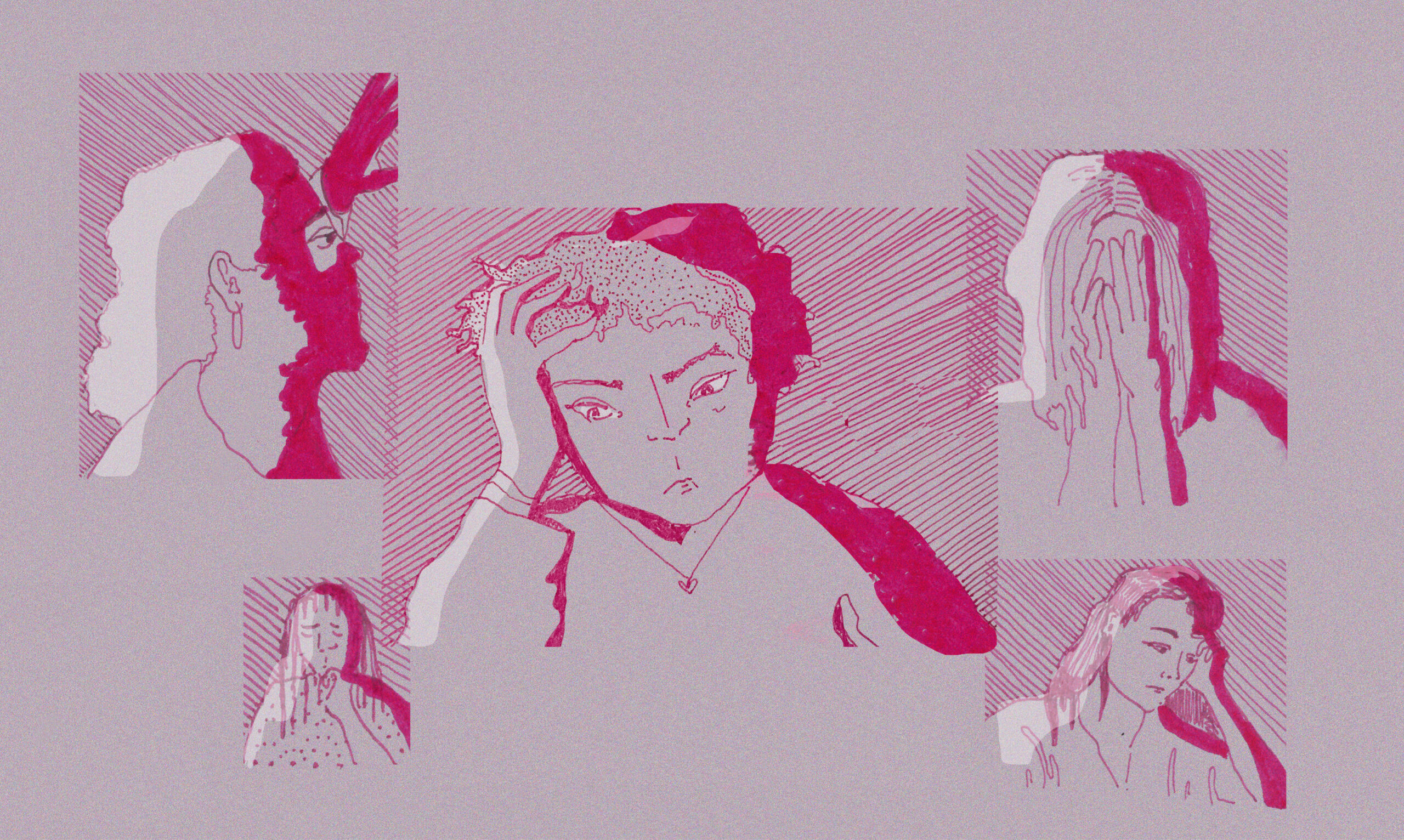
Serina Kitazono
How can we end gendered violence, when the Violence Against Women and Girls sector is violent?
After a decade of working in the sector, Evie Muir explores the violence within it – and the potential for change from the grassroots.
Evie Muir
09 Jun 2022
Content warning: This article contains mention of abuse.
“Can we still be doing this in 10, 20 years?” I mused to myself aloud. It was a particularly stressful day within a particularly stressful month of November last year. Having just found out I was being made redundant for the second time in two years, part of me felt relieved. A month-long campaign of hate against my colleague, a trans woman of colour (which in turn saw myself facing abuse for my allyship), was just starting to cool off. I was exhausted, burnt out and no longer held hope that the domestic abuse sector was a safe place for me: a Black, queer survivor whose work specialises in support for those with similar experiences. I realised with a weight of defeatism that the Violence Against Women and Girls (VAWG) sector is itself, violent.
This sounds like an oxymoron – how can something that is designed to combat violence also perpetrate it? The reality is, the sector has been protected by a visage of morality and martyrdom for too long, upheld on a pedestal of goodness, void of critique. This lack of criticism creates a culture of harm, a harm that I’ve witnessed and experienced repeatedly in my 10 years of working within the sector.
“How can something that is designed to combat violence also perpetrate it?”
In the VAWG sector, violence looks like a white, cisgender hegemony translated into practice at both the structural and individual levels. To understand institutional violence is to recognise that violence isn’t always physical – something that services themselves have long been reminding us within the context of intimate partner violence. It perpetuates harm by deepening economic insecurities through fixed-term contracts and insecure employment, by denying practitioners therapy for the secondary trauma we absorb daily and by limiting maternity leave to the statutory bare bones in women’s organisations. The ways that white-led organisations monopolise funding is central to this culture of harm, as is the positioning of anti-racism and LGBTQI+ inclusion as an inconvenient and debatable add-on rather than integral to the movement.
This is where these harms are most visible: in the ways the sector yields authoritarian power over its staff, most of whom are, like me, survivors themselves, working within our own trauma whilst being re-victimised by abusive workplaces. These foundations accommodate the racism, transphobia and wider bias perpetrated by our co-workers, managers and trustee boards.
“We’re creating conditions of powerlessness, both for the people being supported and for those supporting them,” Janey Starling, campaign manager of feminist advocacy group Level Up, tells me. Joining me on Zoom from the comfort of our respective beds, I enviously listen to the practices Level Up have implemented to ensure staff wellbeing – taking naps being one of them. “You can never remove the quality of service from the conditions of the workers,” she says.
“We know that because of austerity, there’s smaller budgets, awful salaries, poor training, and everything is crisis driven. We’re constantly exposed to trauma, constantly assessing people for risk – homicide risk, suicide risk – that’s so stressful,” she continues. “Rather than being met with compassion for how hard this role is, there’s a culture of emotional repression, because if you struggle, you’re told you’re not tough enough for a tough job.”
This is something I’ve experienced and witnessed numerous times, with a manager once accusing me of drinking on the job because I cried when our team was told we’d have to take on more cases. Using racism to justify her assumption, she said: “That’s what your people do.”
The sector continuously fails to practice what it preaches, especially when it comes to trauma-informed practice – something which is only recognised in the one-dimensional context of white, cisgender women’s trauma. Positioning this victimhood as the authority within the gendered violence movement, this victim-abuser-saviour dichotomy fails to recognise the nuanced trauma caused by, for example, white supremacy, and white women’s roles in upholding this.
“If you struggle, you’re told you’re not tough enough for a tough job”
Janey Starling
“We’re positioned as being incapable of causing harm. Just because we have been victimised in the past and that’s the reason we do this work does not give us a blank cheque to dominate, coerce and bully other women, especially women of colour and trans women,” Janey says. The way that many within domestic abuse and sexual violence services are being radicalised by an anti-trans agenda – investigated previously by gal-dem – is something I’ve seen escalate at a terrifying rate, with both trans women and their allies abused, gaslit, silenced and scapegoated.
Sussex-based sexual violence and abuse organisation Survivors’ Network is the latest group to be targeted by this insidious transphobia. Committed to intersectionality and trans-inclusive feminism, the Brighton-based organisation supports survivors of all genders, and welcomes trans women in all their women-only spaces. In April, they were made aware that a legal claim is due to be made against the organisation in relation to their trans-inclusive ethos. In their statement regarding this anticipated legal action, they speak of their learning of this through media reports which allege they have “broken equalities laws”.
This sets a chilling precedent for the future of the VAWG sector; one that’s no longer concerned with the collective fighting of patriarchy, but uses the same patriarchal tactics of power, control, coercion, and manipulation against minoritised survivors and their allies. When it comes to institutional racism however, these tools have long since been embedded into the fabric of the movement.
Emma*, a support worker in one of the UK’s leading domestic abuse organisations, spoke to me on the condition of anonymity about the ways racism translates to a climate of fear and silences practitioners like herself, who is Black and has a chronic illness. “How do I lend my voice to this issue without pissing my employers off and getting myself in trouble?” she said.
Having returned to work after a prolonged absence, she recognised that she could no longer put her health on the line for a job that exacerbated her symptoms by expecting her to hold the trauma of her community with little support. “Since then, I’ve been putting my boundaries up. I’m not giving all of myself to the organisation because I’m taking a battering. And the way I’ve tried to explain it to them is: white women can simply work nine to five, but after five we’re in the community, fighting, supporting, petitioning. This work never stops for us.”
“I’m not giving all of myself to the organisation because I’m taking a battering”
Emma
In recognising the injustices within the sector – that there is a culture of silence around harm and that power and control are so readily weaponised – we can see that the VAWG sector has a long way to go in abolishing gendered violence. The fact that the sector is so deeply entwined with systems of policing and carceral punishment only exacerbates the problems that already exist.
From the moment a survivor steps foot into a service, they are presented with a depressingly unimaginative route to ‘justice’ and ‘healing’ through the criminal justice system that’s unlikely to see their perpetrators punished (only 1.6% of all rape cases for example, result in a charge). Practitioners are legally obliged to report survivors with insecure immigration status to Prevent, and the MARAC (Multi-Agency Risk Assessment Conference) process, which is chaired by local police and funded by the Home Office, arguably continues to measure high-risk cases in relation to prosecutable evidence as opposed to genuine need. The domestic abuse and sexual violence services continue to work with a system that has been proven time and time again, doesn’t work.
To paraphrase Angela Davis, “You have to act as if it were radically possible to transform the world. And you have to do it every day.” Integral to an abolitionist practice is the embodying of hope and imagination. Yet, from a dissociated place of state-submissive burnout, envisioning change feels impossible. Some of my experiences, and hearing others’, have left me wondering if the VAWG sector is designed for just that: to keep the white cisgender hegemony intact.
“From a dissociated place of state submissive burn out, envisioning change feels impossible”
Hope, however, can be found in multiple avenues of change, resistance and mobilisation. In 2021, practitioners at Solace Women’s Aid spoke out against the institutional racism they’d experienced and unionised against their organisation. Calling for a resignation of the CEO, the directors, the head of human resources, and the board of trustees, employees stated: “Solace is made up of the women who show up every day to do battle with millennia of oppression, not those at the top who enforce and legitimise it.” The collective was successful in their demands and the CEO stepped down later that year, proving the power of unionising and collective resistance.
Last year also saw the emergence of the VAWG Anti-Racism Working Group, a coalition of Black, minoritised and white women working in the VAWG sector. The working group has curated a charter and feministo – two transformative documents that provide a blueprint for addressing racism in the sector through meaningful change at all levels. One call to action seeks an “overhaul of how we work together as a sector, so that Black and minoritised organisations are no longer co-opted, governed or expected to assimilate with large, well-funded, while-led organisations while meeting huge demand for specialist ‘by and for’ services and facing chronic underfunding”. Their workshops and seminars – many of which I have attended – create a space for learning and empowerment, equipping us with the skills to implement the demands of the charter and feministo within our own workplaces.
“I left feeling like I’d gained a group of new friends and that I wasn’t so alone in this battle for safety within the movement”
Change is also found through solidarity and support. I Am My Sister is a space that addresses the invisibility of women and girls from the African diaspora within services. Meeting monthly online, they create a safe space for Black practitioners across a range of social justice specialisms to share their experiences, feel seen and supported in finding solutions. Grateful to have been invited into this space of sisterhood, I left feeling like I’d gained a group of new friends and that I wasn’t so alone in this battle for safety within the movement.
As a domestic abuse survivor who has worked in the sector for almost a decade, I don’t think safety for all should be seen as an unreasonable request. Having left my abuser in 2018, I no longer feel that it’s the trauma he caused that I embody. Rather, it’s the trauma perpetrated by the domestic abuse sector that keeps me up at night, and makes me question how I can ever return to this work. I know I’m not the only one who feels this way. If we hope to truly eradicate gendered violence, our fight must be against both intimate and institutionalised abuse. It must come to terms with the ways that the VAWG sector harms the movement, and interrogate its role in furthering the cause for transformative justice. These uncomfortable truths about the violence being perpetrated from within need to be spoken and spoken loudly.
Evie Muir hosted a panel event on the anti-racism movement within the VAWG sector in May. The discussion can be viewed here.
Our groundbreaking journalism relies on the crucial support of a community of gal-dem members. We would not be able to continue to hold truth to power in this industry without them, and you can support us from £5 per month – less than a weekly coffee.
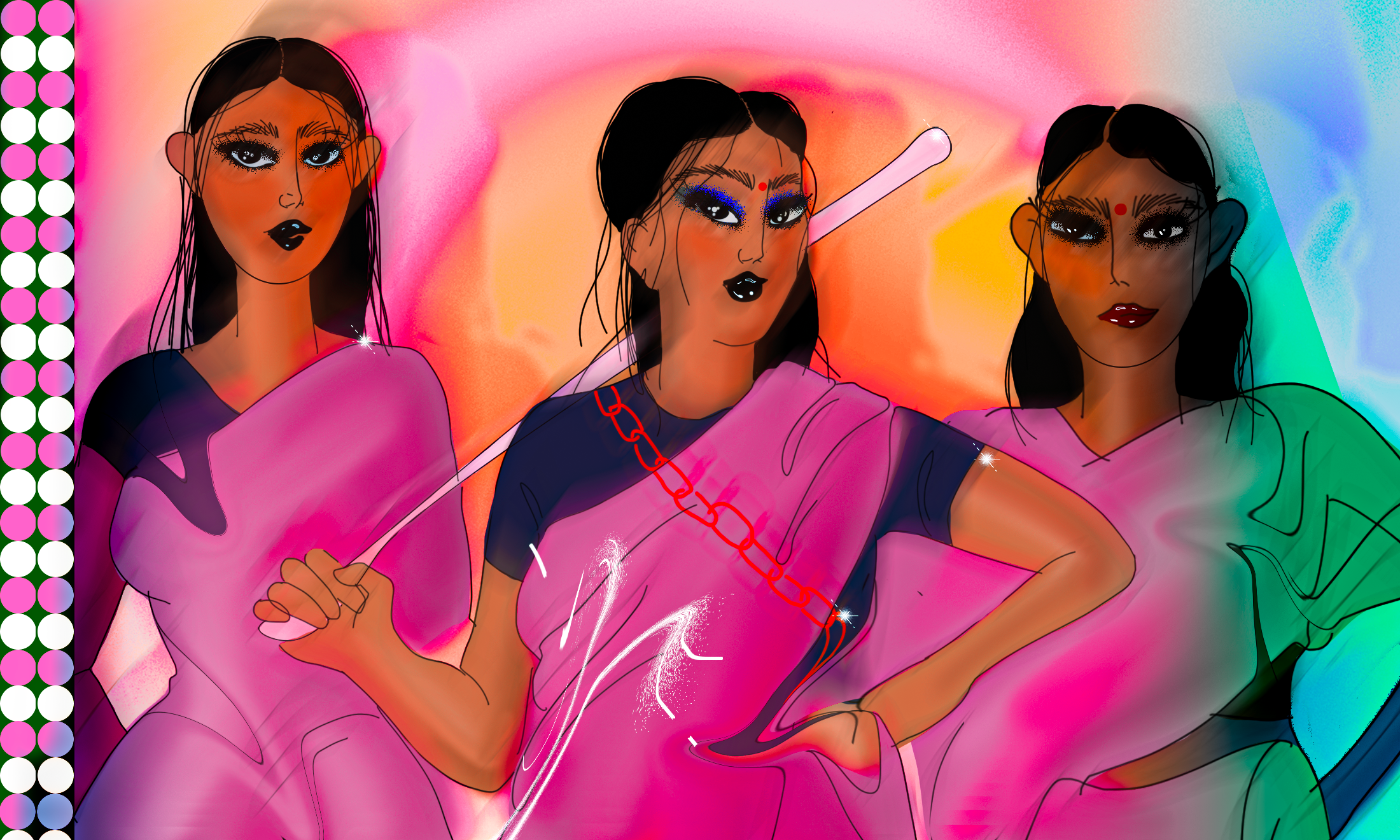
The Gulabi Gang is a sisterhood fighting against domestic violence in India
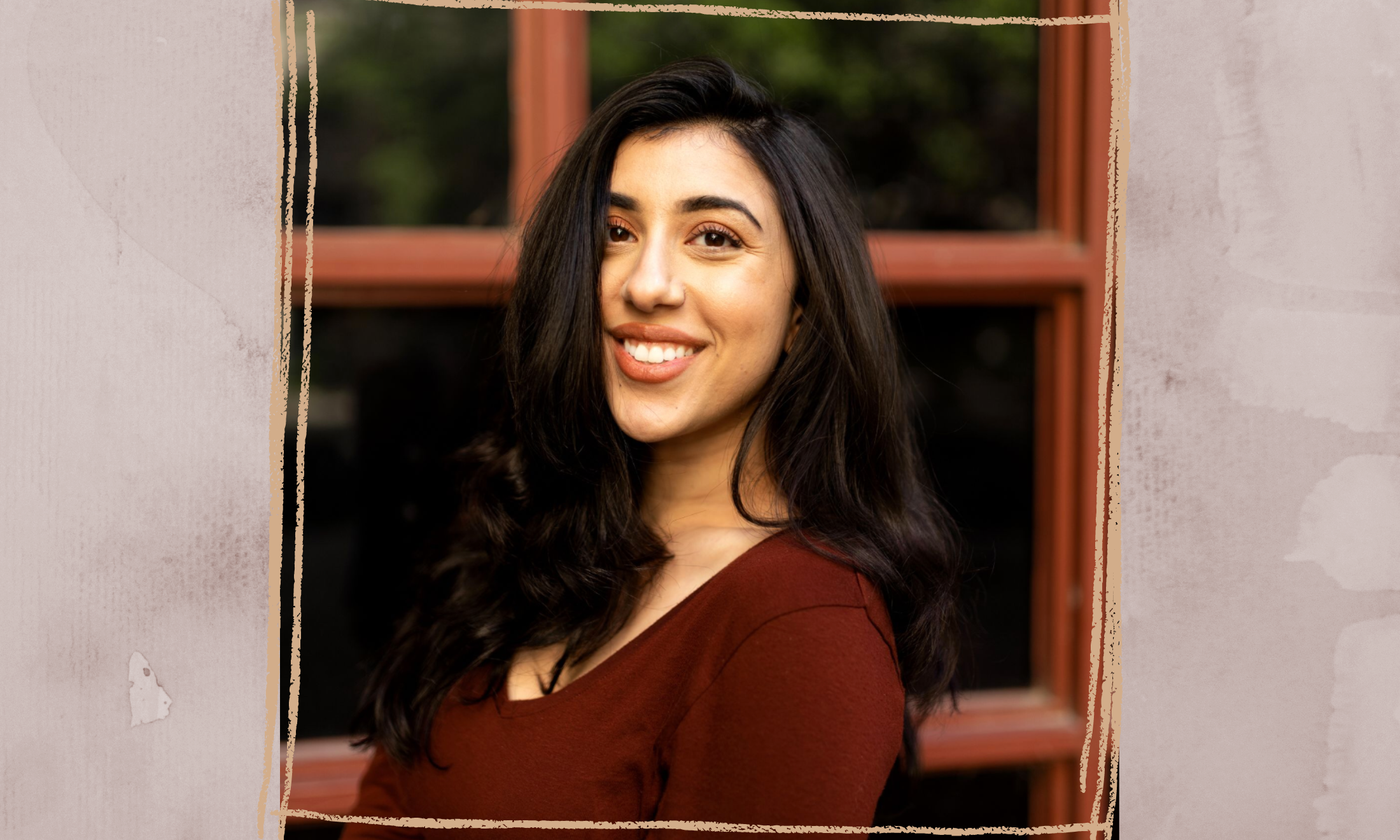
Remembering Sania Khan: the Pakistani-American photographer who spoke out against her abusive marriage
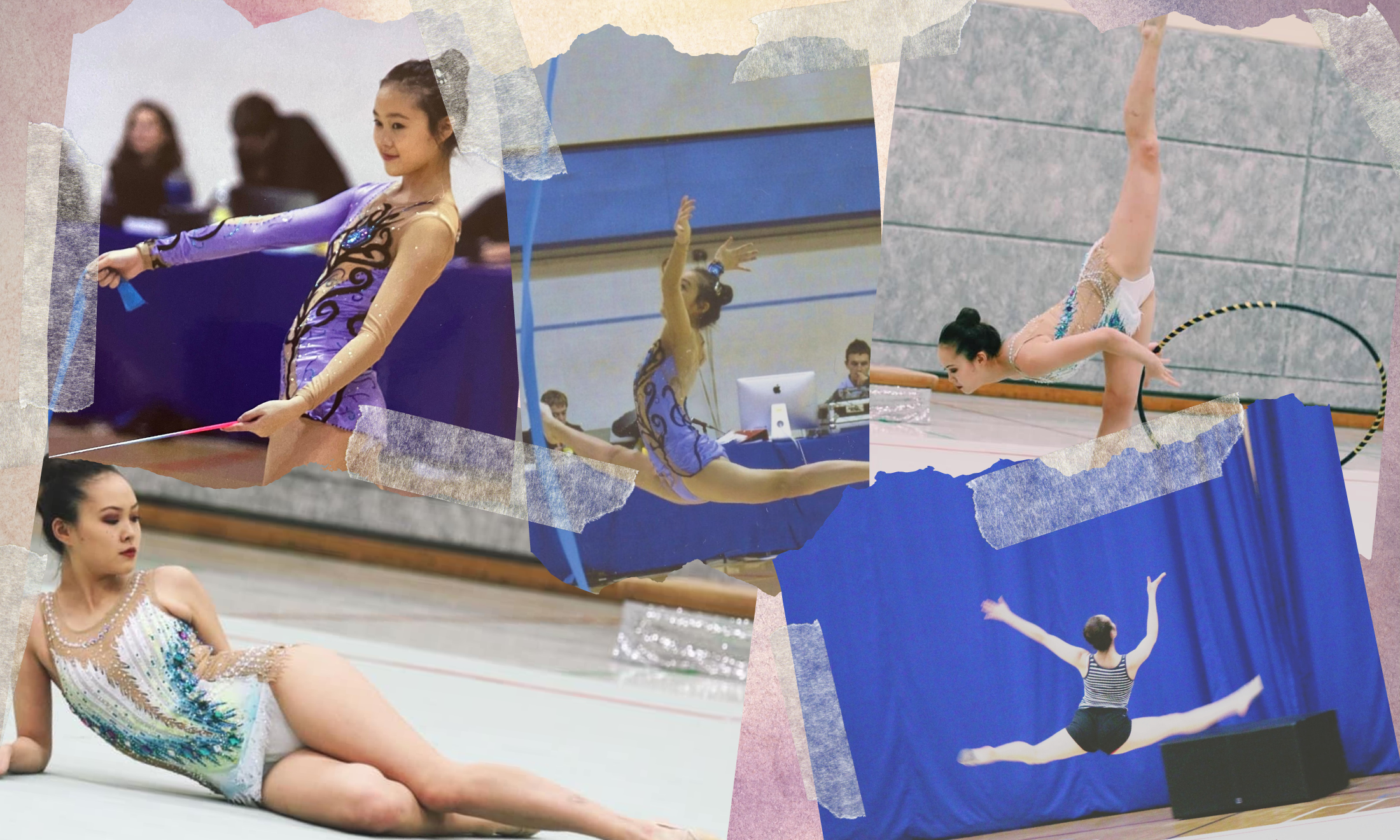
I was a teenage rhythmic gymnast. I’m not surprised by allegations of abuse and mistreatment in the sport
